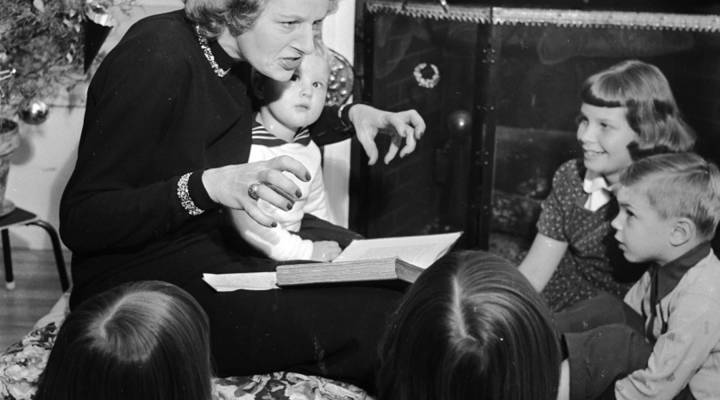
“A Christmas Carol” was supposed to be Dickens’ moneymaker
“A Christmas Carol” was supposed to be Dickens’ moneymaker

Brought to You By is our series about all the stuff that’s become part of the culture and of the economy. Where did they come from and who thought of them?
In “Mr. Dickens and His Carol,” author Samantha Silva reimagines how Charles Dickens came to write “A Christmas Carol,” but in our latest installment of Holidays Brought to You By, Silva explains the real-life economic pressures that pushed Dickens to write the classic novel.
What I’ve done is playfully reimagined how he comes to write “A Christmas Carol,” and the book very much draws on the truth of Dickens’ life. He was, in October of 1843, deep in debt. He’d been a literary rock star in his own time, very aware of his celebrity and of his influence. The Times of London said that he “had risen like a rocket but would sink like a stick.”
He had four children with a fifth on the way at 31 years old, lived a lavish lifestyle, but also was himself a profoundly charitable man. So Dickens had a conundrum when his publishers came to him and said, “‘Martin Chuzzelwit’ is a flop, and you’d better find a way out of it because we’re going to start deducting from your pay 50 pounds sterling per month,” which would have ruined him at the time.
One of the great ironies of “A Christmas Carol” is that Dickens created it, wrote it in six weeks and did it absolutely because he needed a money spinner. It ends up, of course, being the clearest, most crystallized argument of his, of a Dickensian vision of the world, not only at Christmas, but for all the year about how we must be responsible for those who have less and that the only antidote to our own selfishness and greed and miserliness is generosity.
While Dickens did create it to make money, he didn’t, ironically, make money in the moment because he wanted “A Christmas Carol,” the book, to be a beautiful book; the salmon colored cloths and colored etchings and gold at the edge of every page. He wanted it to be priced at 5 shillings so that people could afford to buy it and offered to pay for it himself. So he didn’t make any money on the book that was supposed to be a money spinner for him. But, of course, he has probably saved theaters in the English-speaking world since then who rely on putting up a “Christmas Carol” every year as really their bread and butter.
There’s a lot happening in the world. Through it all, Marketplace is here for you.
You rely on Marketplace to break down the world’s events and tell you how it affects you in a fact-based, approachable way. We rely on your financial support to keep making that possible.
Your donation today powers the independent journalism that you rely on. For just $5/month, you can help sustain Marketplace so we can keep reporting on the things that matter to you.












